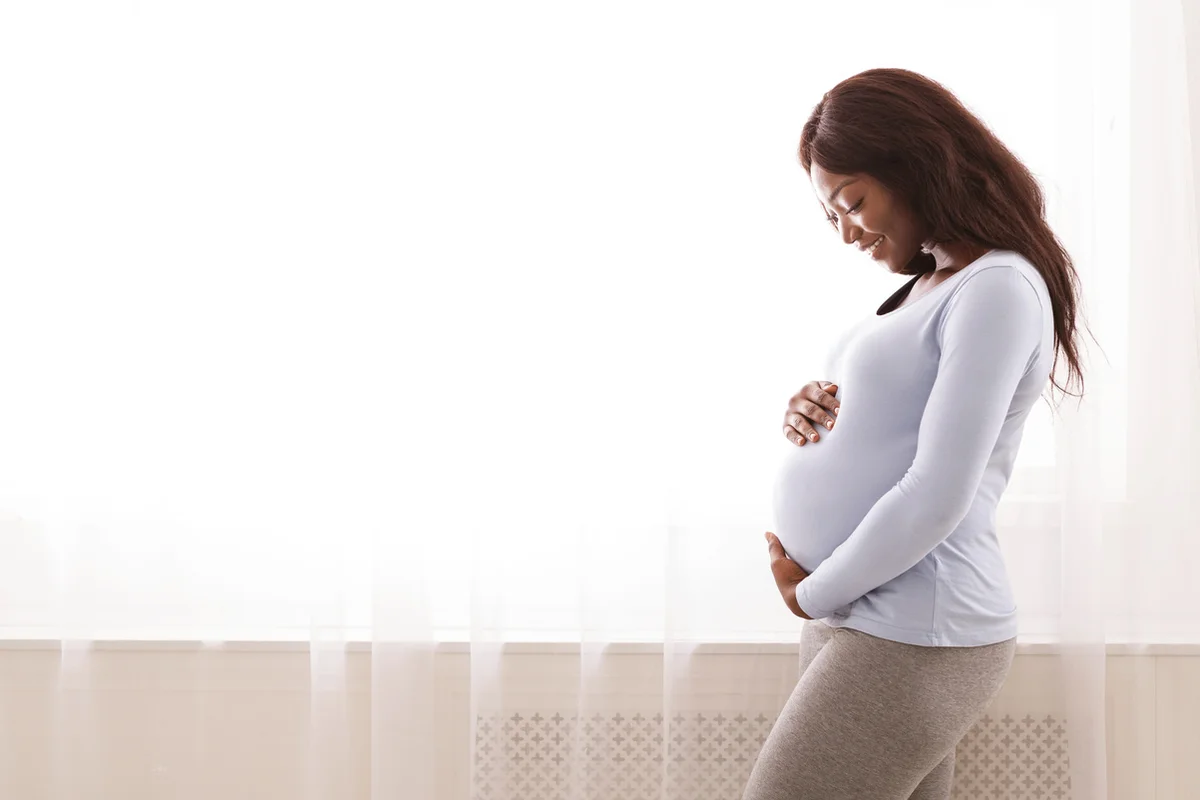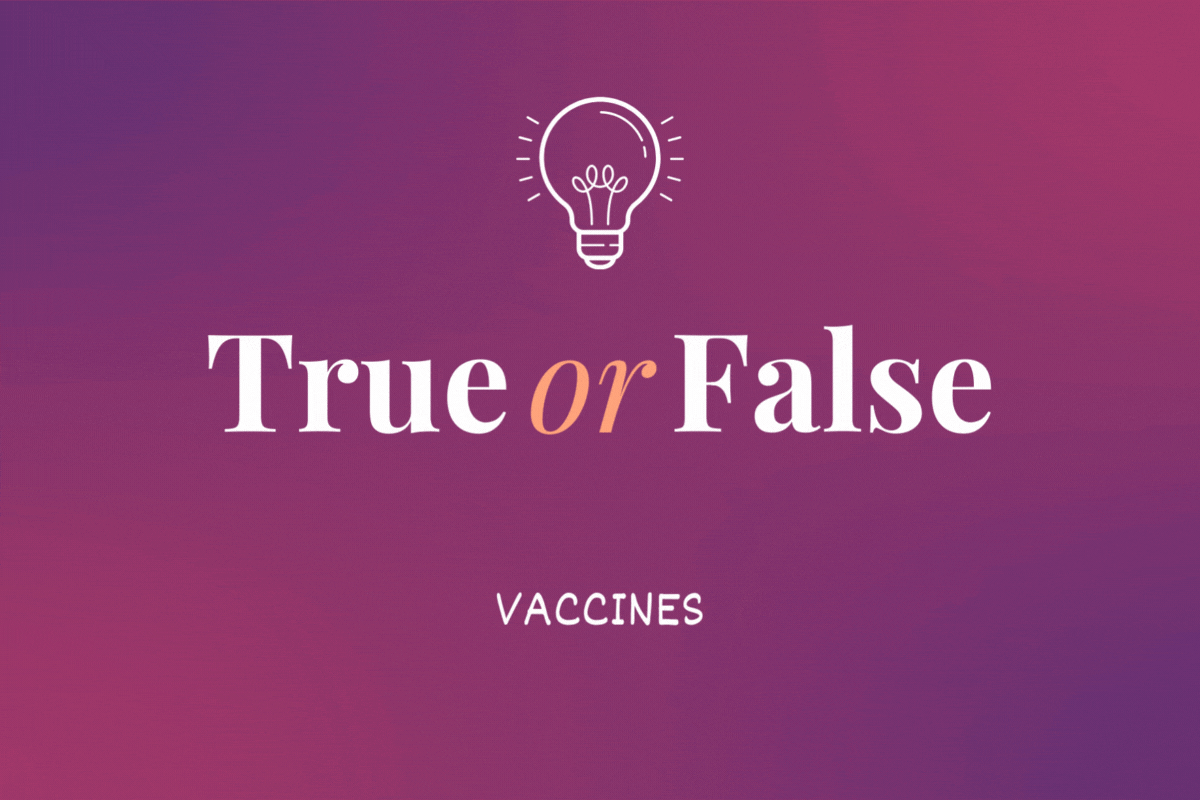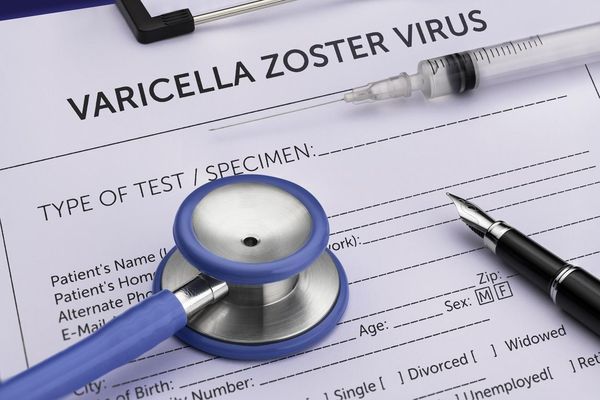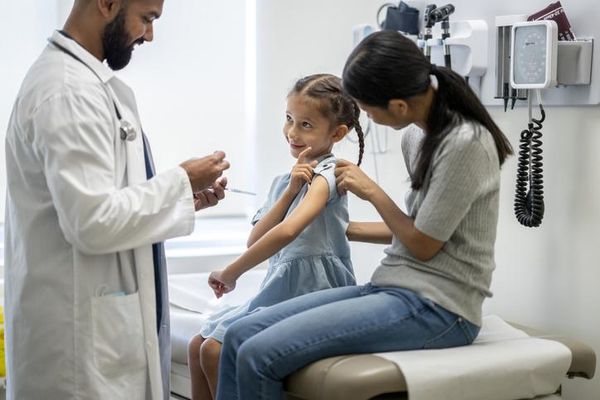Protect mom and baby with vaccines
Did you know a baby gets disease immunity (protection) from mom during pregnancy? This immunity can protect baby from some diseases during the first few months of life, but immunity decreases over time.
Get a whooping cough vaccine and a flu shot during each pregnancy
Moms, get a whooping cough vaccine (also called Tdap) and a flu shot during each pregnancy. Use our Adult Vaccine Self-Assessment Tool to get a customized printout of recommended vaccines to take to the next medical appointment.
Whooping cough
Whooping cough, known as pertussis, can be serious for anyone, but for a newborn, it can be life-threatening.
- About 7 in 10 deaths from whooping cough are among babies younger than 2 months old. These babies are too young to be protected by their own vaccination. The younger the baby is when they gets whooping cough, the more likely they will need to be treated in a hospital.
- It may be hard to know if a baby has whooping cough because many babies with this disease don't cough at all. Instead, it can cause them to stop breathing and turn blue.
When a pregnant woman gets a whooping cough vaccine during pregnancy, her body will create protective antibodies and pass some of them to the baby before birth. These antibodies will provide the baby some short-term, early protection against whooping cough. CDC recommends getting a whooping cough shot during the 27th through 36th week of each pregnancy, preferably during the early part of earlier part of this time period.
Flu
Pregnant women are more likely to have severe illness from flu, possibly due to changes in immune, heart, and lung functions during pregnancy.
Get a flu shot during pregnancy during flu season—it's the best way for a pregnant woman to protect against the flu and protect the baby for several months after birth from flu-related complications. Get a flu shot anytime during each pregnancy.
CDC recommends getting a flu vaccine by the end of October despite flu seasons varying in their timing from season to season. This timing helps protect a pregnant woman before flu activity begins to increase.
Other vaccines
Some women may need other vaccines before, during, or after they become pregnant. For example, if a pregnant woman works in a lab or is traveling to a country where she may be exposed to meningococcal disease, her doctor or healthcare professional may recommend meningococcal vaccination.
- Hepatitis B: A baby whose mother has hepatitis B is at highest risk for becoming infected with hepatitis B during delivery. Moms, talk to your healthcare professional about getting tested for hepatitis B and whether or not you should get vaccinated.
- Hepatitis A: For pregnant women who have a history of chronic liver disease, doctors or healthcare professionals may recommend the hepatitis A vaccine.
- Vaccines for travel: Pregnant women planning international travel should talk to their doctor or healthcare professional at least 4 to 6 weeks before their trip to discuss any special precautions or necessary vaccines. See Traveler's Health for additional tips on how to prepare to travel safely.
Vaccines after childbirth
Healthcare professionals may recommend some women receive certain vaccines right after giving birth. Postpartum vaccination will help protect moms from getting sick, and they will pass some antibodies to the baby through breastmilk if they are able to breastfeed. Vaccination after pregnancy is especially important if moms did not receive certain vaccines before or during pregnancy.
However, moms will not get protective antibodies immediately if they wait to get vaccinated until after birth. This is because it takes about 2 weeks after getting vaccinated before the body develops antibodies.
The baby will also start to get his or her own vaccines to protect against serious childhood diseases.
Note from Dr. Mary Jane Minkin, a clinical professor in the Department of Obstetrics, Gynecology, and Reproductive Sciences at the Yale University School of Medicine and a member of HealthyWomen's Women's Health Advisory Council. Tdap is a combination vaccine that protects against tetanus, diphtheria and pertussis. We recommend reviewing your vaccination history with your Ob-gyn at your preconception visit.
- Stay Healthy Throughout Your Pregnancy - HealthyWomen ›
- Vaccines During Pregnancy and Breastfeeding - HealthyWomen ›
- The Importance of the Tdap Vaccine During Every Pregnancy - HealthyWomen ›
- 6 Ways to Protect Your Baby During Cold and Flu Season - HealthyWomen ›
- Vaccines Before Pregnancy - HealthyWomen ›







